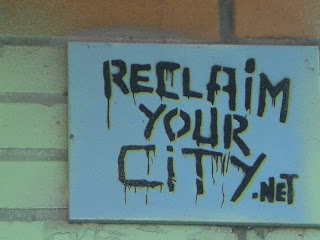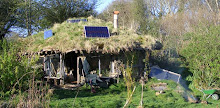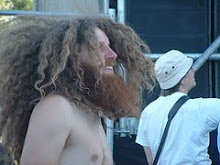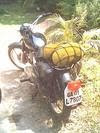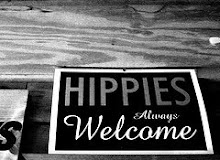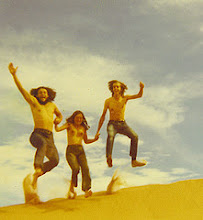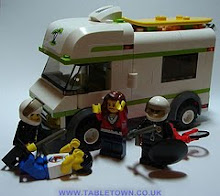18/05/2011
04/05/2011
A different kind of hunger , a poem for you lovely freaks
A century that has reached its beginnings
rolling on without stop or steery cry.
A century that weeps not for its passengers or sorrows for the casualties of its passing tides
Upon its breast we are born and upon its wheat we shall feast and upon it we shall lay our names down for its history's records to keep.
Upon its gentleness we shall cling to , and upon its passing tides we shall live and we shall breath.
gifts that are its years we shall sail
and we shall sail
and we shall sail
Oh we shall lay our heads down upon the path that is this century that we have inherited from the last
given without direction or map
tooled solely with an embrace and nothing more than a sketch and a chance.
A Chance that is to ponder and a chance that is to speak
my friend shall we give our sweat and our toil for the daily bread of this centuries wheat
or shall we laze in a sun of a life so sweet
tis for one man and he alone to decide if his sea is direction-less and the mark and the measure of his own tide,be he a drift or a product of his own time
it is for he and he alone to decide.
rolling on without stop or steery cry.
A century that weeps not for its passengers or sorrows for the casualties of its passing tides
Upon its breast we are born and upon its wheat we shall feast and upon it we shall lay our names down for its history's records to keep.
Upon its gentleness we shall cling to , and upon its passing tides we shall live and we shall breath.
gifts that are its years we shall sail
and we shall sail
and we shall sail
Oh we shall lay our heads down upon the path that is this century that we have inherited from the last
given without direction or map
tooled solely with an embrace and nothing more than a sketch and a chance.
A Chance that is to ponder and a chance that is to speak
my friend shall we give our sweat and our toil for the daily bread of this centuries wheat
or shall we laze in a sun of a life so sweet
tis for one man and he alone to decide if his sea is direction-less and the mark and the measure of his own tide,be he a drift or a product of his own time
it is for he and he alone to decide.
06/04/2011
23/03/2011
14/03/2011
10/03/2011
05/03/2011
BREAK THE MIC: OPEN MIC @ LE MYSANTHROPE
BREAK THE MIC: OPEN MIC @ LE MYSANTHROPE: "So first video is online! Merci to Myscier Blodya . This Happend after he's intense and energetic show. Live beats:Clonediggaz. @ Bar Le Mys..."
03/03/2011
02/03/2011
BERLIN STREET ART
BEEN DOING A BIT OF TRAMPING IN BERLIN THIS WEEK SHIPMATES HERE IS SOME GREAT STREET ART I CAPACTURED ON THE TRAMPCAM
19/02/2011
17/02/2011
may day may day
any peeps who havent joined this wee haven then please do ,your support encourages me to continue tales of sailing tramp A HAVEN FOR FREAKS
15/02/2011
14/02/2011
11/02/2011
YOU GOTTA LOVE TRAMPS ,COME ON PEOPLE GIVE SOME LOVE TO A TRAMP TODAY
Actually to me it seems that the average tramp on the street usually has in general got far more self respect than the working masses, the tramps downfall is that he’s unable to accept shit from the system and knows his true value as a person something everyday people don’t seem to value anymore that of which is not associated with assets and financial success, the tramps downfall is that he unable to bow like a dog and be part of capitalisms social hierarchy
05/02/2011
Got A Light?
Christopher Sandberg, 34, pleaded guilty to arson by criminal negligence after police found him sitting in his truck in Regina, Sask., Canada, with a propane canister. Police know Sandberg as a "huffer" -- he's addicted to breathing propane. As officers were talking with him, Sandberg lit a cigarette; the resulting explosion sent both officers flying. They weren't injured, but Sandberg suffered second-degree burns over more than 10 percent of his body. After his arrest, Sandberg was released on bail on the condition that he not possess any sort of pressurized canister, but he was found passed out in a park a month later, with a propane bottle next to him. His attorney pleaded for probation so Sandberg can overcome "all of his addictions" -- especially propane and cigarettes -- but the judge ordered him to jail for 14 months. (Regina Leader-Post) ...Sentencing Guidelines: Cigarette addiction: shrug. Propane addiction: probation. Simultaneous propane and cigarette addictions: jail.
Christopher Sandberg, 34, pleaded guilty to arson by criminal negligence after police found him sitting in his truck in Regina, Sask., Canada, with a propane canister. Police know Sandberg as a "huffer" -- he's addicted to breathing propane. As officers were talking with him, Sandberg lit a cigarette; the resulting explosion sent both officers flying. They weren't injured, but Sandberg suffered second-degree burns over more than 10 percent of his body. After his arrest, Sandberg was released on bail on the condition that he not possess any sort of pressurized canister, but he was found passed out in a park a month later, with a propane bottle next to him. His attorney pleaded for probation so Sandberg can overcome "all of his addictions" -- especially propane and cigarettes -- but the judge ordered him to jail for 14 months. (Regina Leader-Post) ...Sentencing Guidelines: Cigarette addiction: shrug. Propane addiction: probation. Simultaneous propane and cigarette addictions: jail.
The reasons politicians lie is because the public doesn't want to hear the truth. People want to hear what they want to hear. When two candidates are running and one of the tells the truth and the other says what the public wants to hear, the one who says what the public wants to hear wins the election. Thus, and there are exceptions to this, if you want to win an election, you better start lying, because the guy who's telling you the truth doesn't have a chance
02/02/2011
Don't say that I will depart tomorrow --
even today I am still arriving.
Look deeply: every second I am arriving
to be a bud on a Spring branch,
to be a tiny bird, with still-fragile wings,
learning to sing in my new nest,
to be a caterpillar in the heart of a flower,
to be a jewel hiding itself in a stone.
I still arrive, in order to laugh and to cry,
to fear and to hope.
The rhythm of my heart is the birth and death
of all that is alive.
I am the mayfly metamorphosing
on the surface of the river.
And I am the bird
that swoops down to swallow the mayfly.
I am the frog swimming happily
in the clear water of a pond.
And I am the grass-snake
that silently feeds itself on the frog.
I am the child in Uganda, all skin and bones,
my legs as thin as bamboo sticks.
And I am the arms merchant,
selling deadly weapons to Uganda.
I am the twelve-year-old girl,
refugee on a small boat,
who throws herself into the ocean
after being raped by a sea pirate.
And I am the pirate,
my heart not yet capable
of seeing and loving.
I am a member of the politburo,
with plenty of power in my hands.
And I am the man who has to pay
his "debt of blood" to my people
dying slowly in a forced-labor camp.
My joy is like Spring, so warm
it makes flowers bloom all over the Earth.
My pain is like a river of tears,
so vast it fills the four oceans.
Please call me by my true names,
so I can hear all my cries and my laughter at once,
so I can see that my joy and pain are one.
Please call me by my true names,
so I can wake up,
and so the door of my heart
can be left open,
the door of compassion.
~Thich Nhat Hanh
even today I am still arriving.
Look deeply: every second I am arriving
to be a bud on a Spring branch,
to be a tiny bird, with still-fragile wings,
learning to sing in my new nest,
to be a caterpillar in the heart of a flower,
to be a jewel hiding itself in a stone.
I still arrive, in order to laugh and to cry,
to fear and to hope.
The rhythm of my heart is the birth and death
of all that is alive.
I am the mayfly metamorphosing
on the surface of the river.
And I am the bird
that swoops down to swallow the mayfly.
I am the frog swimming happily
in the clear water of a pond.
And I am the grass-snake
that silently feeds itself on the frog.
I am the child in Uganda, all skin and bones,
my legs as thin as bamboo sticks.
And I am the arms merchant,
selling deadly weapons to Uganda.
I am the twelve-year-old girl,
refugee on a small boat,
who throws herself into the ocean
after being raped by a sea pirate.
And I am the pirate,
my heart not yet capable
of seeing and loving.
I am a member of the politburo,
with plenty of power in my hands.
And I am the man who has to pay
his "debt of blood" to my people
dying slowly in a forced-labor camp.
My joy is like Spring, so warm
it makes flowers bloom all over the Earth.
My pain is like a river of tears,
so vast it fills the four oceans.
Please call me by my true names,
so I can hear all my cries and my laughter at once,
so I can see that my joy and pain are one.
Please call me by my true names,
so I can wake up,
and so the door of my heart
can be left open,
the door of compassion.
~Thich Nhat Hanh
01/02/2011
CCTV
Closed-circuit television cameras were first used in Germany in 1942 to remotely monitor the launch of V2 rockets. Since then, CCTVs have become one of the most contentious pieces of technology in public use. The government and law enforcement agencies claim the use of video monitoring technology can help reduce crime and improve public safety; critics argue that the cameras serve only to displace crime to unmonitored areas, and do not act as a deterrent. With more than four million CCTV units in the UK, the network of cameras captures the average person around 25 times a day.
RFID tags
Radio frequency identification chips are already widely used in supermarkets and shops for the purpose of stock control, but some people fear their use could be widened to monitor the habits and behaviour of ordinary citizens. At the moment, these tags, which are little bigger than a grain of sand, are embedded into pints of milk and library books. When paired with an RFID reader, the tags can help to provide detailed information about items, such as their location, or how many there are. Although most people are happy for RFID tags to be used in stores to monitor stock levels, they’re less happy about the idea of the chips still sending out a signal once they leave the shop. On a benign level, such tracking capabilities would mean a store would know that people in Hertfordshire prefer blue cashmere jumpers, while those in Aberdeen favour the brown versions. But on a more sinister level, it could also enable them to glean an unprecedented insight into our personal lives, and target their brands to us accordingly. To those people who fear a “surveillance culture”, the ability to tag and track everything from our food to our clothes would be the next step on an already slippery slope.
Closed-circuit television cameras were first used in Germany in 1942 to remotely monitor the launch of V2 rockets. Since then, CCTVs have become one of the most contentious pieces of technology in public use. The government and law enforcement agencies claim the use of video monitoring technology can help reduce crime and improve public safety; critics argue that the cameras serve only to displace crime to unmonitored areas, and do not act as a deterrent. With more than four million CCTV units in the UK, the network of cameras captures the average person around 25 times a day.
RFID tags
Radio frequency identification chips are already widely used in supermarkets and shops for the purpose of stock control, but some people fear their use could be widened to monitor the habits and behaviour of ordinary citizens. At the moment, these tags, which are little bigger than a grain of sand, are embedded into pints of milk and library books. When paired with an RFID reader, the tags can help to provide detailed information about items, such as their location, or how many there are. Although most people are happy for RFID tags to be used in stores to monitor stock levels, they’re less happy about the idea of the chips still sending out a signal once they leave the shop. On a benign level, such tracking capabilities would mean a store would know that people in Hertfordshire prefer blue cashmere jumpers, while those in Aberdeen favour the brown versions. But on a more sinister level, it could also enable them to glean an unprecedented insight into our personal lives, and target their brands to us accordingly. To those people who fear a “surveillance culture”, the ability to tag and track everything from our food to our clothes would be the next step on an already slippery slope.
Everyone needs power on the go at some point, in this day and age with all the new-fangled gadgetry that goes on it can get expensive.
Some clever chaps from Japan have come up with a way of turning your regular liquid excretions into a free source of energy!
These clever little batteries have been reported to last up to 10 years on one charge! Sadly, these are not yet available for sale
Some clever chaps from Japan have come up with a way of turning your regular liquid excretions into a free source of energy!
These clever little batteries have been reported to last up to 10 years on one charge! Sadly, these are not yet available for sale
31/01/2011
19/01/2011
18/01/2011
brew your own
brew your own its easy all you need is a hose a big container ,suger and a cheap beer concerntrate mix which comes with yeast,why pay your cash to a big brewery , brew your own
16/01/2011
14/01/2011
very silly
Organised by Conwy and Denbighshire Community Safety Partnership, the North Wales council spent over £4000 on the initiative which aimed to check that pubs were serving alcohol responsibility.
Three ‘professional witnesses’ were hired to work over three weekends, pretending they were drunk in front of bar staff.
According to papers documenting the operation, the actors staggered around ‘dressed in dishevelled and stained clothing’, slurring their speech and falling over.
They also told bar staff they were drunk as they ordered more drinks.
According to the official report, while some premises refused to serve the ‘drunk’ customers, many did not.
But while ordinarily bar staff would face fines for serving customers they believe to be under the influence, as the actors were only pretending to be drunk no offence was actually committed.
Staff found serving the ‘drunks’ were provided with free training instead.
Three ‘professional witnesses’ were hired to work over three weekends, pretending they were drunk in front of bar staff.
According to papers documenting the operation, the actors staggered around ‘dressed in dishevelled and stained clothing’, slurring their speech and falling over.
They also told bar staff they were drunk as they ordered more drinks.
According to the official report, while some premises refused to serve the ‘drunk’ customers, many did not.
But while ordinarily bar staff would face fines for serving customers they believe to be under the influence, as the actors were only pretending to be drunk no offence was actually committed.
Staff found serving the ‘drunks’ were provided with free training instead.
tattoo, a great form of expression
Tattooing has been a Eurasian practice at least since around Neolithic times. Ötzi the Iceman, dating from the fourth to fifth millennium BC, was found in the Ötz valley in the Alps and had approximately 57 carbon tattoos consisting of simple dots and lines on his lower spine, behind his left knee, and on his right ankle. These tattoos were thought to be a form of healing because of their placement which resembles acupuncture. Other mummies bearing tattoos and dating from the end of the second millennium BC have been discovered, such as the Mummy of Amunet from Ancient Egypt and the mummies at Pazyryk on the Ukok Plateau.
Pre-Christian Germanic, Celtic and other central and northern European tribes were often heavily tattooed, according to surviving accounts. The Picts were famously tattooed (or scarified) with elaborate dark blue woad (or possibly copper for the blue tone) designs. Julius Caesar described these tattoos in Book V of his Gallic Wars (54 BC).
Tattooing in Japan is thought to go back to the Paleolithic era, some ten thousand years ago.[citation needed] Various other cultures have had their own tattoo traditions, ranging from rubbing cuts and other wounds with ashes, to hand-pricking the skin to insert dyes.
Tattooing in the Western world today has its origins in Polynesia, and in the discovery of tatau by eighteenth century explorers. The Polynesian practice became popular among European sailors, before spreading to Western societies generally.
Pre-Christian Germanic, Celtic and other central and northern European tribes were often heavily tattooed, according to surviving accounts. The Picts were famously tattooed (or scarified) with elaborate dark blue woad (or possibly copper for the blue tone) designs. Julius Caesar described these tattoos in Book V of his Gallic Wars (54 BC).
Tattooing in Japan is thought to go back to the Paleolithic era, some ten thousand years ago.[citation needed] Various other cultures have had their own tattoo traditions, ranging from rubbing cuts and other wounds with ashes, to hand-pricking the skin to insert dyes.
Tattooing in the Western world today has its origins in Polynesia, and in the discovery of tatau by eighteenth century explorers. The Polynesian practice became popular among European sailors, before spreading to Western societies generally.
12/01/2011
06/01/2011
02/01/2011
2011 the year of the freak
Happy new year to all you lovely freaks ,have a good 2011
keep on rocking in the free world .
keep on rocking in the free world .
Subscribe to:
Comments (Atom)















